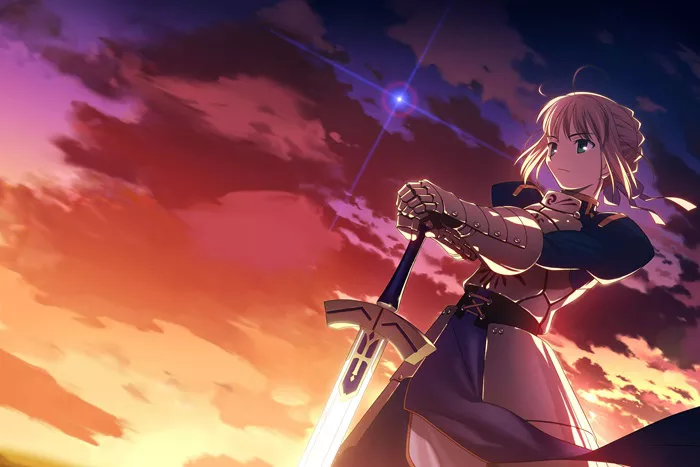The Fate/stay night franchise, renowned for its intricate storytelling and rich character development, has long been a cornerstone of the anime and visual novel communities. The 2006 anime adaptation by Studio Deen, however, is frequently criticized for its shortcomings, especially when juxtaposed with the high-caliber productions of ufotable’s adaptations, such as Unlimited Blade Works (2014) and Heaven’s Feel (2017-2020). The recent release of Fate/stay night REMASTERED offers a chance to revisit and better understand the original material, shedding light on the failings of the earlier adaptation and revealing what the 2006 anime missed.
The Quest for Context: Analyzing Fate/Stay Night Remastered
The arrival of Fate/stay night REMASTERED provides an unprecedented opportunity for fans to experience the beloved visual novel in English for the first time. This remaster allows audiences to delve into the intricate details crafted by writer Kinoko Nasu and fully grasp the distinctive qualities of the ‘Fate’ route. More crucially, it highlights how the 2006 anime adaptation failed to deliver the full depth of the narrative and its connections to subsequent storylines.
The Power of Replay Value: The Essence of Visual Novels
Visual novels are celebrated for their ability to blend literary depth with interactive elements, offering a unique form of engagement compared to traditional video games. Nasu’s Fate/stay night exemplifies this with its multiple narrative routes—Fate, Unlimited Blade Works, and Heaven’s Feel—each providing a different perspective on the story and characters. This approach encourages players to explore “what-if” scenarios, enriching their understanding of the narrative.
In Fate/stay night, these routes build upon each other, creating a complex narrative structure that enhances the overall experience. For instance, the interplay between Unlimited Blade Works and Heaven’s Feel deepens the impact of key events and character developments, such as Saber’s transformation into an antagonist in Heaven’s Feel after her role in the earlier routes.
The Importance of Power Scaling in Storytelling
Effective power scaling is crucial for maintaining narrative tension and context. It helps audiences grasp the stakes and the relative strength of characters. Fate/stay night uses power scaling to great effect, particularly in its portrayal of characters like Gilgamesh and Berserker. Their roles and the challenges they present are crucial in understanding the escalating threats in subsequent storylines.
The 2006 anime, however, struggles with this concept. By not fully embracing the depth of the ‘Fate’ route, it fails to establish the necessary context for understanding the scale of threats in later routes. Fate/stay night REMASTERED provides a clearer picture, allowing fans to appreciate the nuanced power dynamics that are central to the story.
The Shortcomings of the 2006 Anime Adaptation
Studio Deen’s 2006 adaptation is frequently criticized for its failure to capture the essence of the original visual novel. The attempt to merge elements from all three routes resulted in a disjointed narrative, undermining character relationships and key plot points. Notably, the adaptation’s handling of characters like Rin and Sakura detracts from their development across the routes, and the addition of certain plot points—such as Caster’s kidnapping of Sakura—distracts from the core narrative.
Revisiting the Source Material: Fate/Stay Night Remastered
Despite its flaws, the 2006 anime’s impact on the Fate/stay night fanbase cannot be ignored. However, Fate/stay night REMASTERED offers a chance to revisit the original visual novel with fresh eyes. While it may not be a complete overhaul, the remastered version provides invaluable context and insight into the story’s intricate details.
The remaster stands as a testament to the enduring appeal of Fate/stay night. Like classic literary works, its value grows with time, offering new generations of fans an opportunity to experience a timeless narrative in its original form.
In conclusion, while the 2006 anime adaptation of Fate/stay night has its merits, it falls short in delivering the full depth of Kinoko Nasu’s vision. Fate/stay night REMASTERED not only corrects this oversight but also allows fans to fully appreciate the complexity and beauty of the original visual novel.

